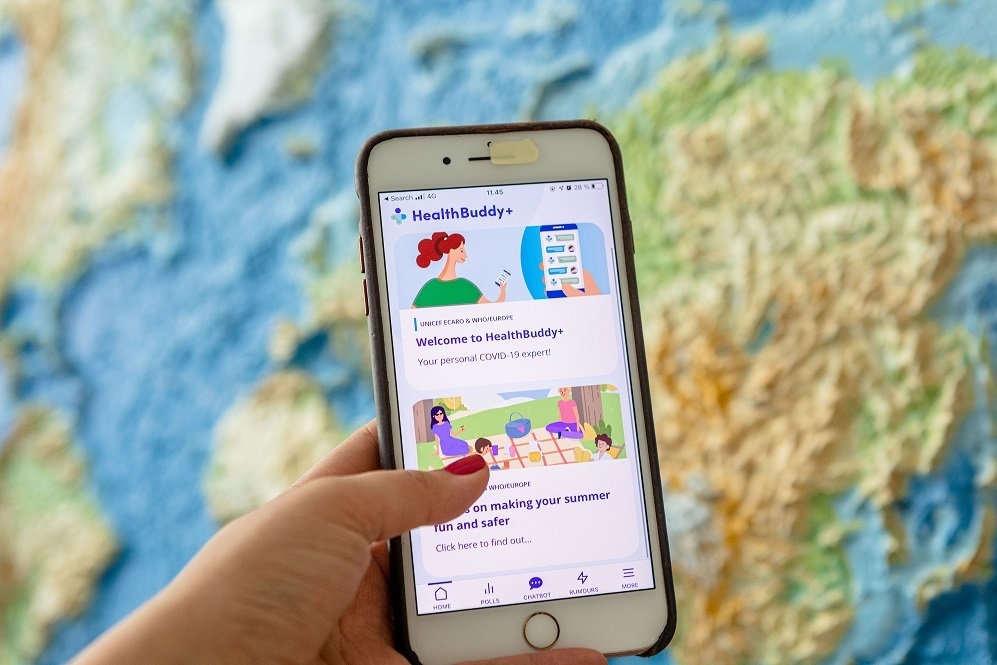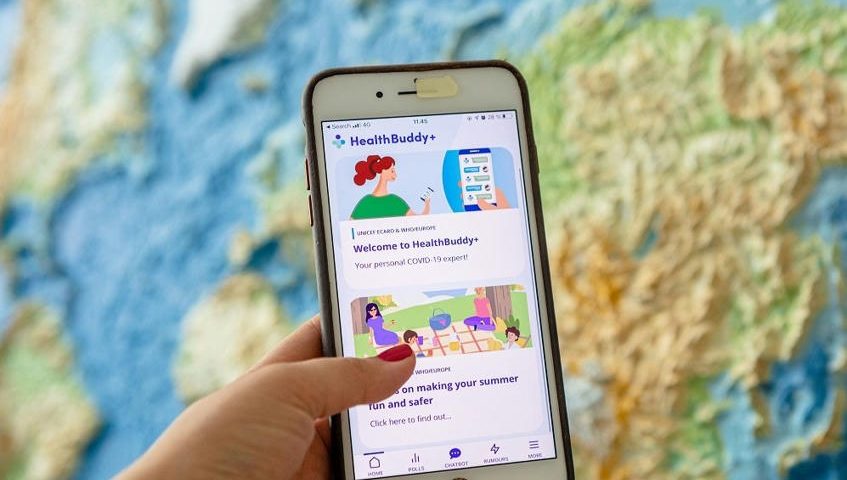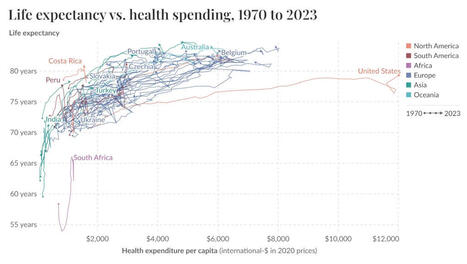Q&A: How to combat the infodemic with digital solutions to reduce health risks during the COVID-19 pandemic and beyond
COVID-19 trajectories among 57 million adults in England: a cohort study using electronic health records
08/07/2022
Smartphone apps in the COVID-19 pandemic | Nature Biotechnology
08/07/2022 
“Digital solutions to health risks raised by the COVID-19 infodemic” is a new WHO/Europe policy brief that calls for a whole-of-society approach to improve the public health response to the COVID-19 infodemic and ensure we are better prepared for future health emergencies. In this Q&A, we highlight the main questions that the policy brief addresses and share some of the policy considerations it proposes. 1. What is an infodemic, and why has it been so damaging during the COVID-19 pandemic?An infodemic – or information epidemic – is defined as an overabundance of information, including false or misleading information, in digital and physical environments during an emergency.This has been particularly acute during COVID-19, as false and misleading information has reduced the impact of evidence-based responses that governments and health authorities have made to curb the pandemic. Exposure to false information – both online and offline – has been linked to increased health risks as a result of harmful behaviours, such as using unproven, ineffective treatments, and not adopting recommended protective measures, including vaccination and mask-wearing. The confusion sown by the COVID-19 infodemic has also led to worsened mental health and emotional well-being, and a drop in trust in health-care authorities. 2. What are the main digital solutions that the policy brief identifies, and why are they important in the infodemic response?Social media and the internet have often been used to disseminate overabundant, false and misleading information regarding COVID-19. At the same time, they are key spaces where solutions can be found and implemented. Several digital innovations have been developed to respond to the infodemic, for example:fact-checking and false information reporting and debunking mechanisms; social listening tools (tools to track users’ reactions to pertinent topics on social media platforms) augmented by artificial intelligence (AI);monitoring programmes, multistakeholder coordination initiatives and national regulatory frameworks that respect the principles of freedom of expression; anddigital health literacy interventions to help people recognize misinformation and improve their ability to spot it (also called inoculation). 3. Who should be involved in the infodemic response?Implementing digital solutions to confront the infodemic calls for a whole-of-society approach. This means cooperating with everyone, from the public to social media platforms, the information technology sector, health policy-makers, fact-checking and civil society organizations, and United Nations organizations, among others. The shared objective is to improve the WHO European Region’s public health response to the COVID-19 infodemic and enhance preparedness for future health emergencies. 4. What is WHO doing to address the infodemic in the Region and globally?In response to the infodemic, WHO has launched a variety of initiatives at global and regional levels. In the European Region, these are embedded in the areas of risk communication and community engagement (for example, monitoring for and responding to high-risk infodemic signals through online and offline systems). The initiatives link to digital health (for example, building capacity for electronic learning among national health authorities) as well as behavioural and cultural insights.The brief outlines how WHO/Europe is bringing to life operational and policy considerations in support of and in close coordination with Member States and other subnational and international governmental and nongovernmental stakeholders.Concrete examples of these efforts include the development of digital communication strategies; mobile apps disseminating accurate health information; AI-based innovations for rumour tracking, community feedback and social listening; training, events and conferences to promote infodemic management; social listening and behavioural insights surveys; rumour-tracking mechanisms and multi-language fact-checking; and partnerships with social media and web companies. With this publication, another valuable tool is added to this list. 5. What considerations does WHO/Europe propose to help Member States improve their infodemic responses? The brief proposes a list of policy considerations for all stakeholders, including reinforcing multistakeholder networks for infodemic management; strengthening overall risk communication and community engagement; implementing continuous monitoring of online harmful and false content; improving digital literacy approaches and organizing infodemic management trainings; advocating for infodemic management; and encouraging policy changes to make online platforms safer for users.
Lire l’article complet sur : www.who.int



